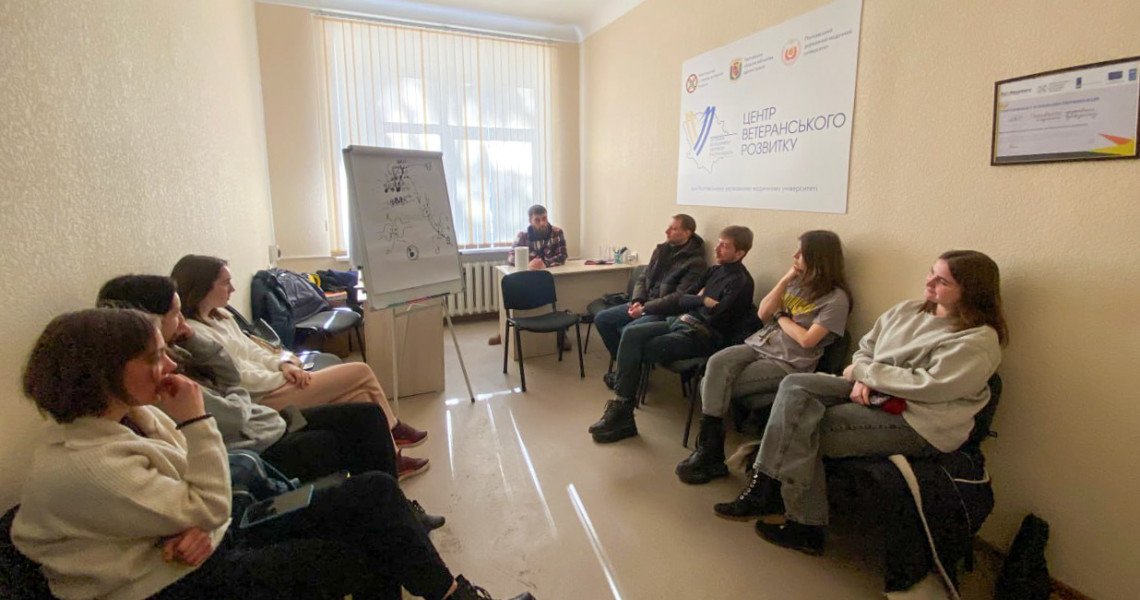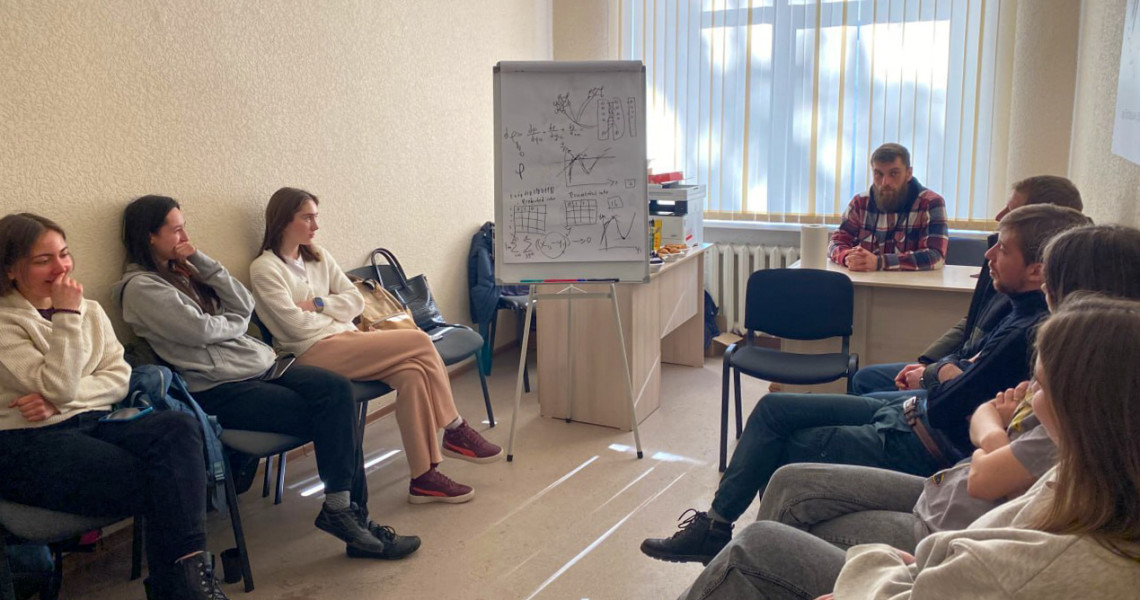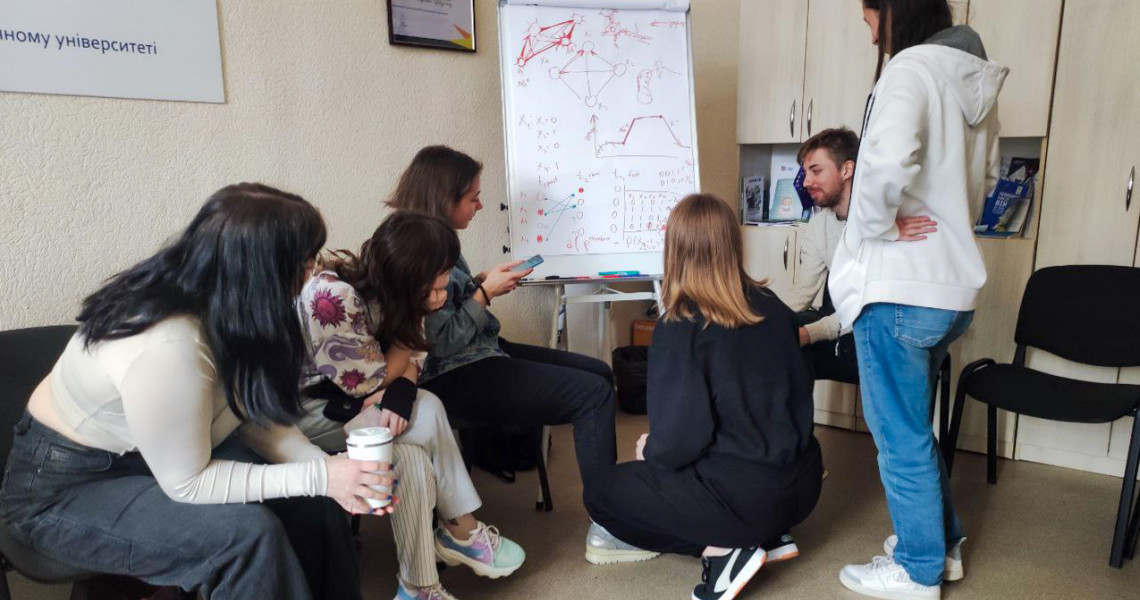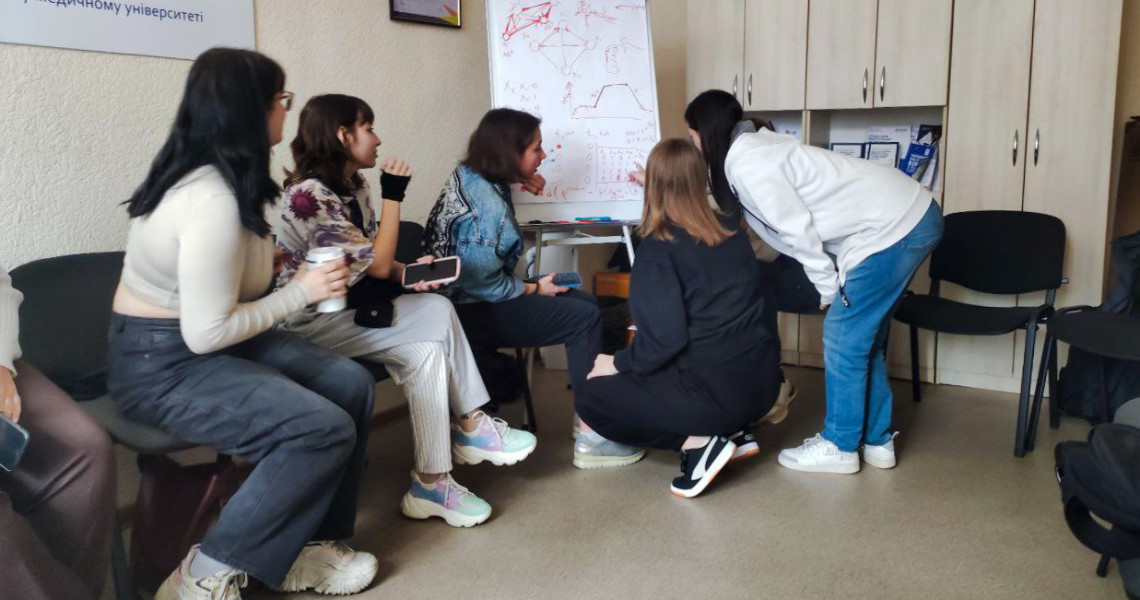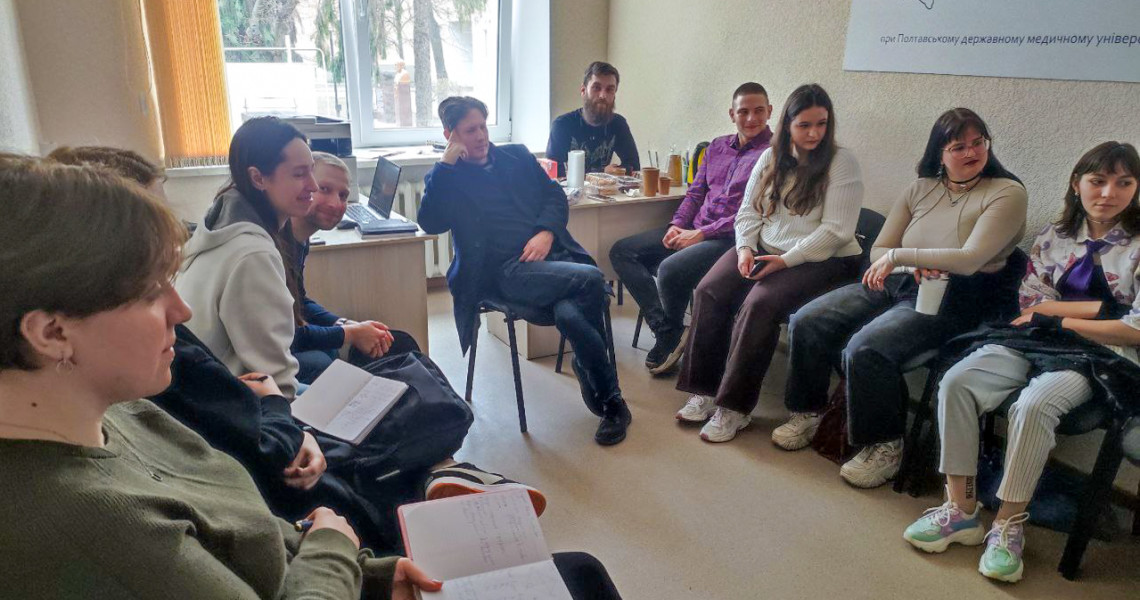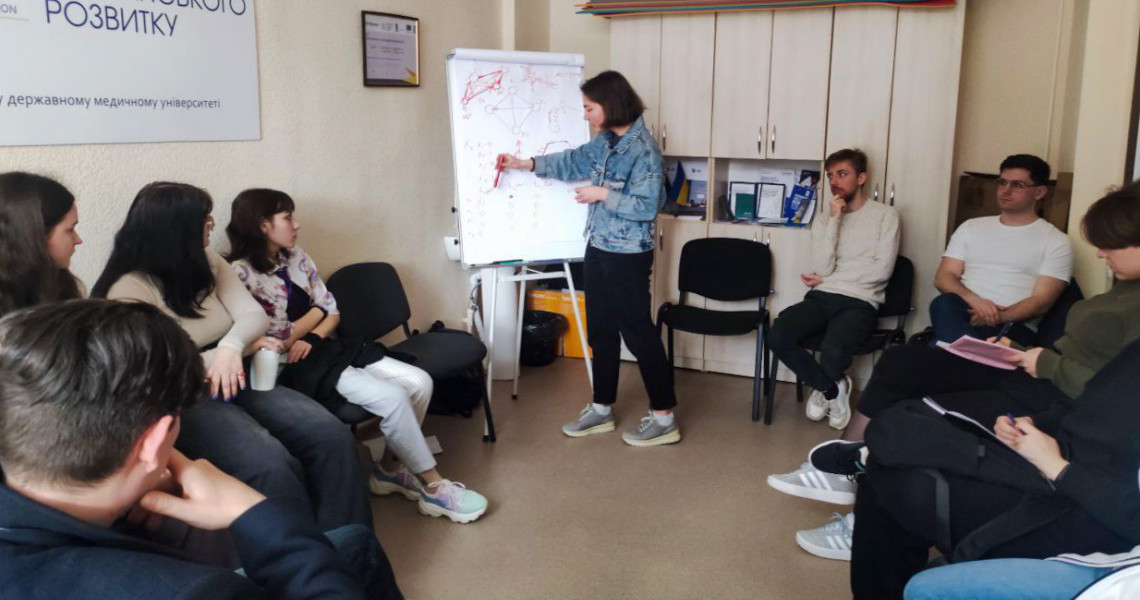Відбулися засідання студентської наукової групи кафедри психіатрії, наркології та медичної психології, присвячене сучасним теоріям свідомості. Учасники обговорили взаємозв’язок свідомості з психічним здоров’ям. Другий блок зустрічей був присвячений теоріям свідомості. Доцент кафедри Дмитро Бойко, куратор СНГ, провів дискусію щодо аналізу особистості використовуючи нейромережі та математичні моделі. Студенти розглянули приклади використання теорій свідомості у клінічній та консультативній практиці, а також обговорили, як математичний аналіз може допомогти у діагностиці та терапії психічних розладів. Упродовж обговорення особлива увага була приділена «складній проблемі» свідомості та теорії інтегрованої інформації.
Зустрічі викликали живе зацікавлення серед студентів, які активно ставили запитання та ділилися власними думками щодо різних аспектів свідомості й особистості, тому тематика охопила два засідання. Учасники відзначили цінність подібних обговорень для формування глибшого розуміння психіатрії та медичної психології, а також їхнього впливу на практичну діяльність фахівців у сфері психічного здоров’я. Поряд з цим у зв'язку з проходженням навчання за обміном старостою СНГ було вирішено обрати новим старостою СНГ студента 6-ого курсу медичного факультету № 1 Андрія Цюцюру.
Прес-служба Полтавського державного медичного університету
Integrated Information Theory and the Concept of Consciousness: Psychology and Mathematics Explored at Student Scientific Group Meeting
The student scientific group of the Department of Psychiatry, Narcology and Medical Psychology at Poltava State Medical University recently held a thought-provoking series of meetings focused on modern theories of consciousness. Participants delved into the interrelationship between consciousness and mental health, highlighting its significance in both clinical understanding and therapeutic application.
The second segment of the discussions centered specifically on theoretical models of consciousness. Associate Professor Dmytro Boiko, the group’s curator, led an engaging session on personality analysis through neural networks and mathematical models. Students examined the potential of consciousness theories to enhance diagnostic and therapeutic approaches in clinical and counseling practice.
Special emphasis was placed on the “hard problem” of consciousness and the Integrated Information Theory (IIT), which proposes that consciousness arises from the integration of information within a system. The exploration of such interdisciplinary topics sparked keen interest, prompting rich discussions and insightful student contributions across both meetings.
Due to high engagement and academic value, the series extended across two sessions. In light of student exchange participation, a new group leader was elected—Andrii Tsiutsiura, a 6th-year student of Medical Faculty No. 1—who will continue to coordinate the group’s activities.
These meetings provided students not only with a deeper understanding of psychiatry and medical psychology, but also with tools for integrating theory with practice, shaping well-rounded future professionals in mental health care.






